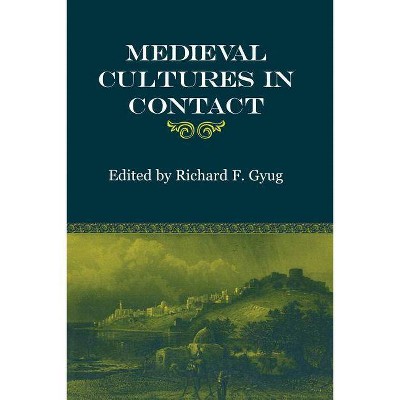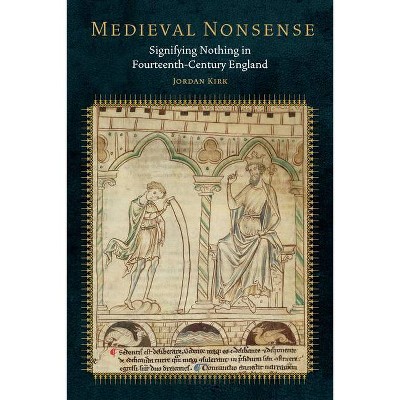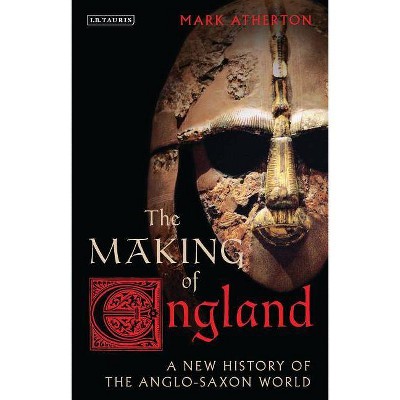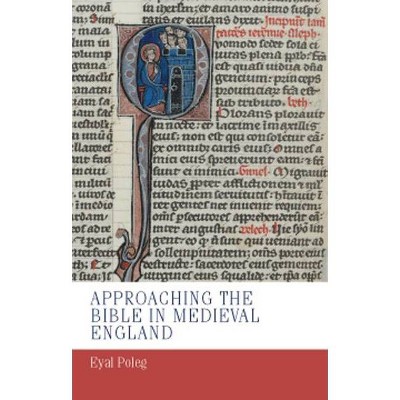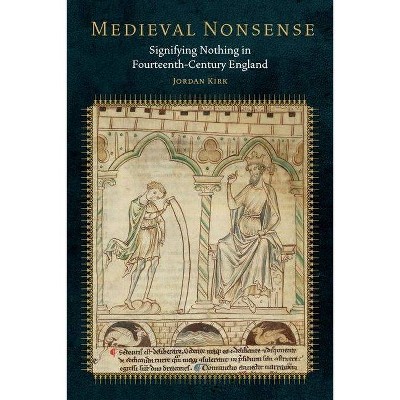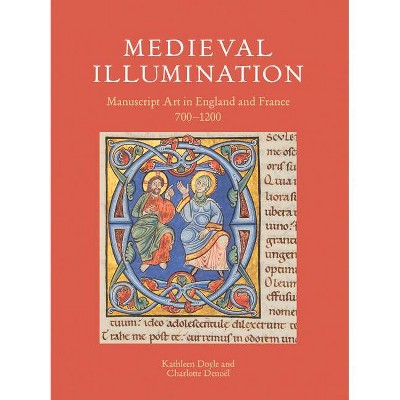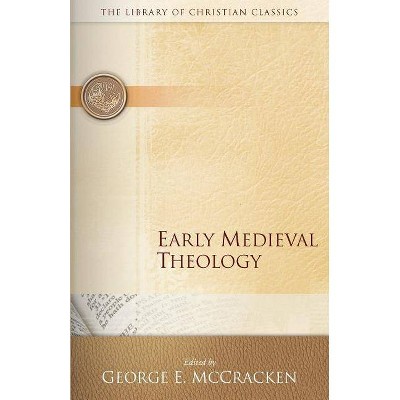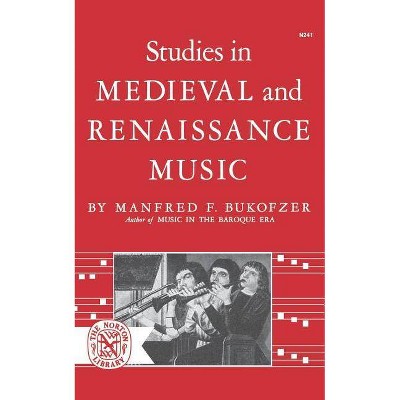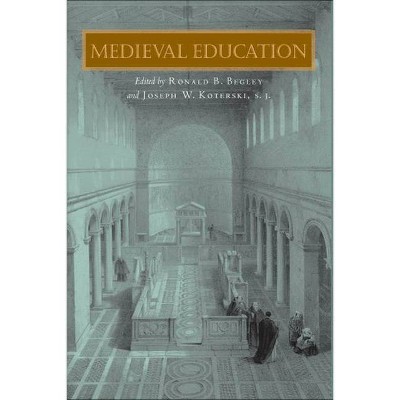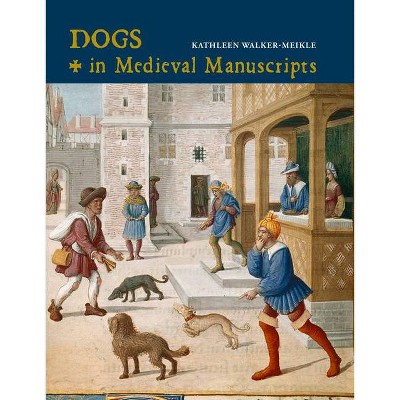The Medieval Christian Philosophers - (Library of Medieval Studies) by Richard Cross (Paperback)
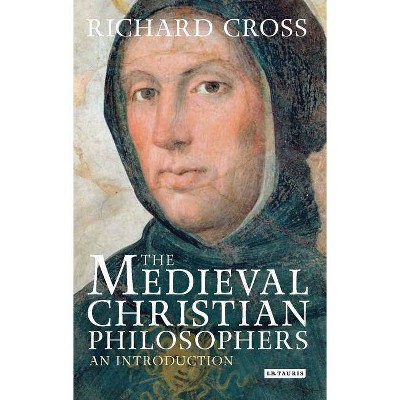
Similar Products
Products of same category from the store
AllProduct info
<p/><br></br><p><b> Book Synopsis </b></p></br></br>The High Middle Ages were remarkable for their coherent sense of 'Christendom': of people who belonged to a homogeneous Christian society marked by uniform rituals of birth and death and worship. That uniformity, which came under increasing strain as national European characteristics became more pronounced, achieved perhaps its most perfect intellectual expression in the thought of the western Christian thinkers who are sometimes called 'scholastic theologians'. These philosophers produced (during roughly the period 1050-1350 CE) a cohesive body of work from their practice of theology as an academic discipline in the university faculties of their day. Richard Cross' elegant and stylish textbook - designed specifically for modern-day undergraduate use on medieval theology and philosophy courses - offers the first focused introduction to these thinkers based on the individuals themselves and their central preoccupations.<br/>The book discusses influential figures like Abelard, Peter Lombard and Hugh of St Victor; the use made by Aquinas of Aristotle; the mystical theology of Bonaventure; Robert Grosseteste's and Roger Bacon's interest in optics; the complex metaphysics of Duns Scotus; and the political thought of Marsilius of Padua and William of Ockham. Key themes of medieval theology, including famous axioms like 'Ockham's Razor', are here made fully intelligible and transparent.<p/><br></br><p><b> Review Quotes </b></p></br></br><br>""Richard Cross has written a clear and engaging guide to the emergence of medieval philosophy in the Latin Christian West. Beginning with the consolidation of the inheritance of antiquity (roughly 1050-1200), Cross traces the development of philosophical thought in its successive phases: the assimilation of new translations of Aristotle and his commentators (1200-1277); the refinement of the neo-Aristotelian synthesis (1277-1300); and its re-evaluation (1300-1350). Anselm, Abelard, Aquinas, Scotus, and Ockham are key players, of course, but they are contextualized in their social and intellectual milieu, so that the contributions of Grosseteste, Bacon, Albert, Henry of Ghent, Godfrey of Fontaines, Peter Auriol, and many others are recognized as well. With insight and grace, Cross discusses the philosophical topics that motivated these thinkers: the problem of universals, the nature of scientific knowledge, the relation of the soul to the body, the mechanisms of human cognition, divine power and foreknowledge, and much else besides. This masterly presentation is lucid and accessible, providing beginners and specialists alike with a thorough account of the period, enlivened by Cross's erudition and wit."" - Peter King, Professor of Philosophy and of Mediaeval Studies, University of Toronto, Canada <p/>""Richard Cross' book provides a lucid introduction to the accepted great figures of medieval philosophy - Aquinas, Henry of Ghent, Scotus and Ockham -, beautifully nuanced treatments of a number of more minor figures and, despite the deliberately old-fashioned choice of material, an important new perspective on it. Cross's presentation is outstanding because, although most of the men he considers were theologians, he treats them, rightly, as doing philosophy of the highest order. Without technical jargon and always in a way fully comprehensible to a beginner, Cross engages philosophically with these thinkers' positions and arguments, so that the reader comes to understand not just what they thought, but the reasons for which they thought it. His big innovation - foreshadowed in much recent specialized work, but never stated so clearly as here - is to see the half century or so immediately after the lifetime of Aquinas as the great period of discovery and achievement in medieval philosophy, with Duns Scotus the pre-eminent philosopher, and Ockham as providing a radical simplification, which however left him and his followers unable to answer fundamental metaphysical questions. I would strongly recommend this book to any student looking for a sober, clear, elegant and stimulating introduction to the recognized great medieval philosopher-theologians."" - John Marenbon, Senior Research Fellow, Trinity College, Cambridge, UK <p/>""Richard Cross's highly intelligent treatment slides easily between historical context and doctrinal exposition, both to orient students to a challenging period and to acquaint contemporary Christian philosophers with the formidable range and creativity of their medieval predecessors. Besides individual chapters on his 'top four' - Anselm, Aquinas, Scotus, Ockham - Cross includes substantial discussions of authors rather less studied: Gilbert of Poitiers, Peter John Olivi, Giles of Rome, Hervaeus Natalis and Peter Aureol, among others, the better to provoke more work on such important medieval thinkers."" - Marilyn McCord Adams, Distinguished Visiting Professor of Philosophy, Rutgers, The State University of New Jersey, and formerly Regius Professor of Divinity, University of Oxford, UK<br><p/><br></br><p><b> About the Author </b></p></br></br>Richard Cross is John O'Brien Professor of Philosophy at the University of Notre Dame. He has published widely on the history of philosophical theology, and his books include Duns Scotus (1999), The Metaphysics of the Incarnation (2002) and Duns Scotus on God (2005).
Price History
Price Archive shows prices from various stores, lets you see history and find the cheapest. There is no actual sale on the website. For all support, inquiry and suggestion messages communication@pricearchive.us
